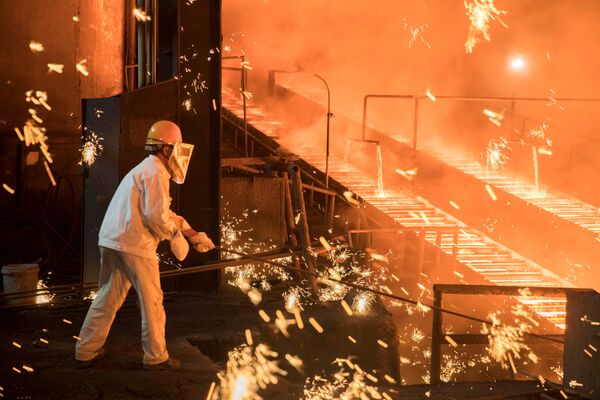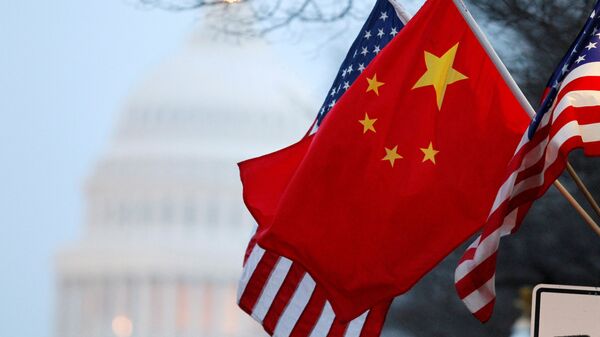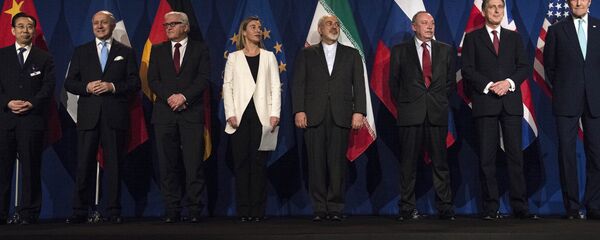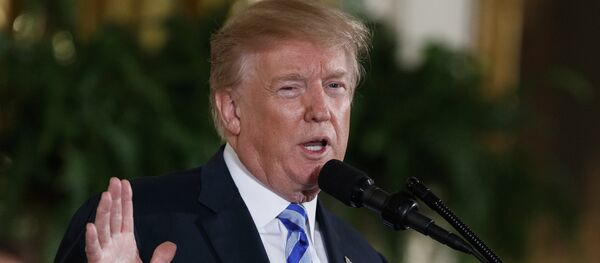Keith Richburg: In relation to the American or Trump administration tariffs or planned tariffs on steel and aluminium, which has sparked a bit of a world-wide controversy, the impact on China, at least on China's steel and aluminium sector will actually be relatively minimal. The reason is that China does not send that much steel and aluminium to the United States, so the impact ironically be more on America's more close trading partners like Canada and the European Union, and the overall impact on China's economy will is likely to be negligible too.
China is responsible for a bit of the glut of steel ion the international market and that's really depressing steel prices around the globe, but the fact is that China doesn't actually send that much steel to the United States so the impact is largely going to be marginal unless there's a bigger trade war which

The Chinese have been actually taking the tact of saying look things have to go through the World Trade Organization, there should not be a trade war, China i's open to the fair rules of trading and globalization, so China is actually trying to take a counter tact from the Trump administration, which is coming across in the world now as the protectionist country under the 'America First' banner. So I think China now sees itself as having the moral high ground on the trade issues, they don't want to ruin that by tit-for-tat retaliation, if fact the irony might be that if you end up with China going to the World Trade Organization, accusing the United States of taking protectionist measurers, that would be incredibly ironic, since it's always been the United States taking China to the WTO and accusing China of adopting nationalistic of protectionist barriers.
READ MORE: China Intends to Decrease Steel Production by 30Mln Tonnes in 2018 — Report
This move is going against really the spirit, if not the letter of the WTO. When the WTO was put into effect the idea was that this would be the place where these kind of trade disputes were resolved and it's always been the United States taking China there, so it does seem to fault the spirit if not the exact rules of the World Trade Organization. President Trump is relying on old rules that seem to say that if national security is hurt he's allowed to put these tariffs in, he's saying basically that the this dumping of steel, as he would say it, globally is hurting the American military, it's a bit of a spurious claim but we'll have to see if it does go to the WTO. Again we keep piling up irony upon irony, but it maybe China and the European partners of America and Canada all joining together taking the United States to court, to the WTO for a ruling on that.
READ MORE: US Import Tariffs to Attract Countermeasures, Disturb Global Supply Chains
It gets a bit complicated as all these things do because the United States at the same time is seeking China's help with imposing stricter sanctions on North Korea. They're really looking for China's help, for example, if he really wants to roll back the nuclear agreement with Iran, don't forget that China is a member of the UN Security Council. It's really complicated because the US needs China on some of these global issues, but President Trump has now tried to single out China as responsible for part of the steel glut on the global market.
China has started some trade retaliation against earlier Trump's administration trade actions, that was when President Trump decided to put tariffs on washing machines and solar panels which he claimed were harming American industries because these things were flooding in, made more cheaply by China. China responded by going after American soybeans and sorghum. These are agricultural products that are shipped to China, they are used to make things like this very strong wine they drink here in China, as well as being used in grain.
China has traditionally gone after American agricultural products when it decided to retaliate against American tariffs or American trade actions. This happened during the George W Bush administration, this happened during the Obama administration, when President Obama put high tariffs basically on
My bet is, and I hate to predict, my bet at the moment is that there might be a lot of rhetorical retaliation coming out of Beijing, but they might prefer to take this case to the WTO, and as I said earlier this will come up with this odd situation where you have the Chinese, the Canadians and the Europeans on one side and the United States and President Trump on the other.
The views and opinions expressed in this article are those of the author and do not necessarily reflect those of Sputnik.






